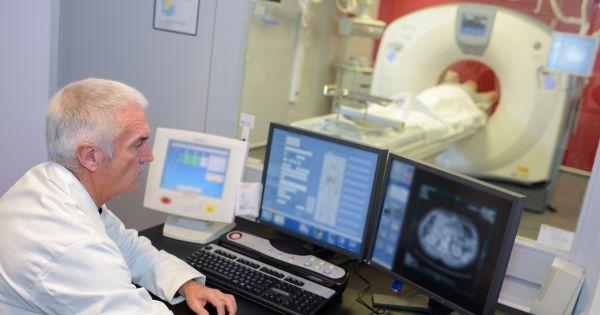
Nuclear medicine is a special area of radiology that utilizes radioactive materials like radiopharmaceuticals to examine organ function. The branch of radiology is highly effective in the medical community. As you explore the benefits of nuclear medicine, you’ll discover its advantages.
What Is Nuclear Medicine?
Nuclear medicine includes small amounts of radioactive materials to diagnose and treat various diseases. Nuclear medicine determines the cause of a medical problem based on the function of an organ, tissue, or bone. This differs from X-rays, ultrasounds, and other diagnostic tests that examine the presences of disease based on their structural appearance. Nuclear medicine can even treat diseases—radiation targets and destroys damaged or diseased organs or tissues.
Common Uses for Nuclear Medicine
Positron Emission Tomography (PET) scans and radiation therapy are common uses for nuclear medicine. The PET scan shows the natural activity of cells, providing detailed information on organ function and the presence of damaged cells. Typically, doctors use PET scans with computed tomography (CT) scans or magnetic resonance imaging (MRI) for a closer look at organs. The scans can diagnose Alzheimer’s disease, heart disease, brain disorders, and cancerous tumors.
Nuclear medicine in treatment targets harmful organs or tissue. Then, radioactivity damages or stops the growth of its cells. The most known nuclear medicines for treatment are radioactive iodine therapy and brachytherapy.
Advantages of Nuclear Medicine
Nuclear medicine has done wonders for patient care, and the benefits of nuclear medicine include diagnosis and treatment capabilities. It provides information on the function of organs, tissues, and cells. Furthermore, radioactivity targets damaged and cancerous cells and reduces the size of tumors or the pain they cause.
Nuclear medicine is sensitive to abnormalities in an organ's structure or function. As a critical part of patient care, nuclear medicine diagnoses, manages, treats, and prevents serious diseases. It can identify abnormalities early in the stages of a disease (before medical problems appear).
Is Nuclear Medicine Safe?
Some people have reservations about nuclear medicine. However, it is one of the safest diagnostic imaging exams today. Patients receive a small amount of a radiopharmaceutical to provide diagnostic information.
Radioactivity treatment can cause skin reddening and hair loss, as nuclear medicine aims to destroy mutated cells in the body. When patients complete treatment, they experience hair regrowth and normal skin pigmentation.
With over 45 years of experience, Moravek is one of the most trusted contract development and manufacturing organizations. We offer carbon 14 labeling that can accelerate research in radiolabeling, supporting drug discovery in the medical industry. We look forward to helping your company soon. Request a quote today!
